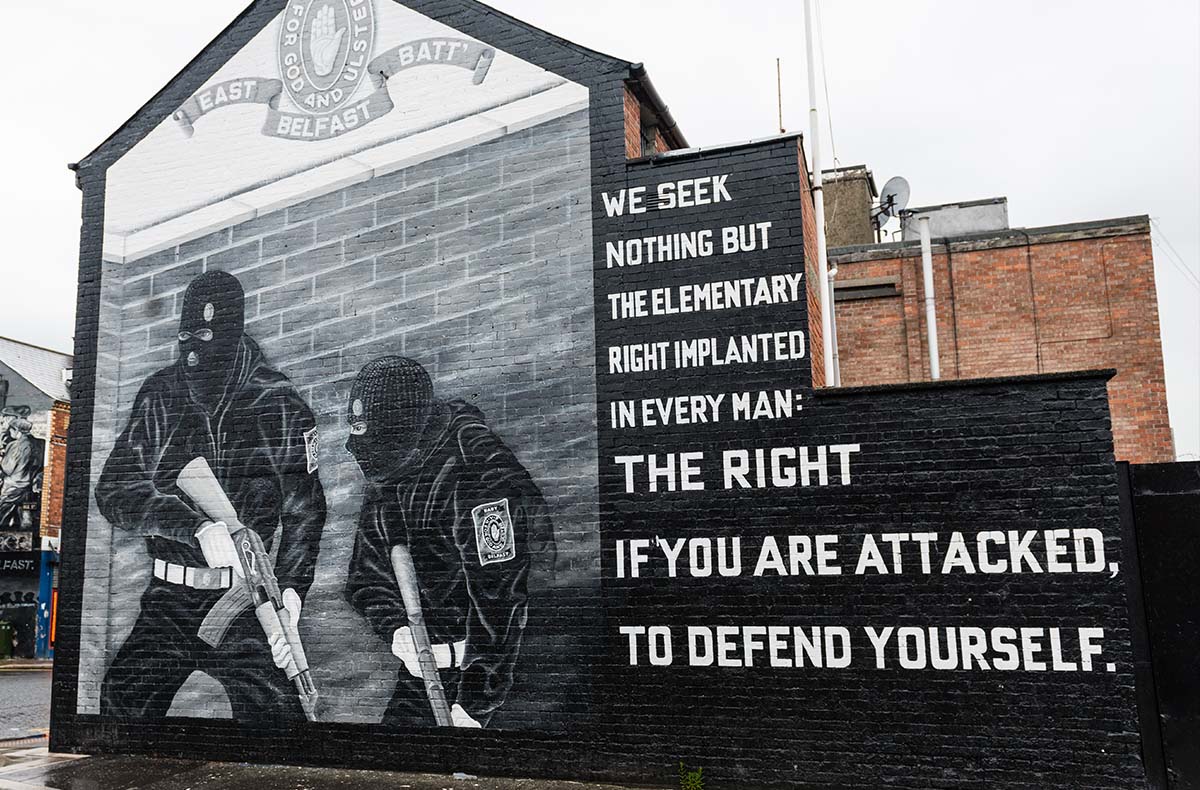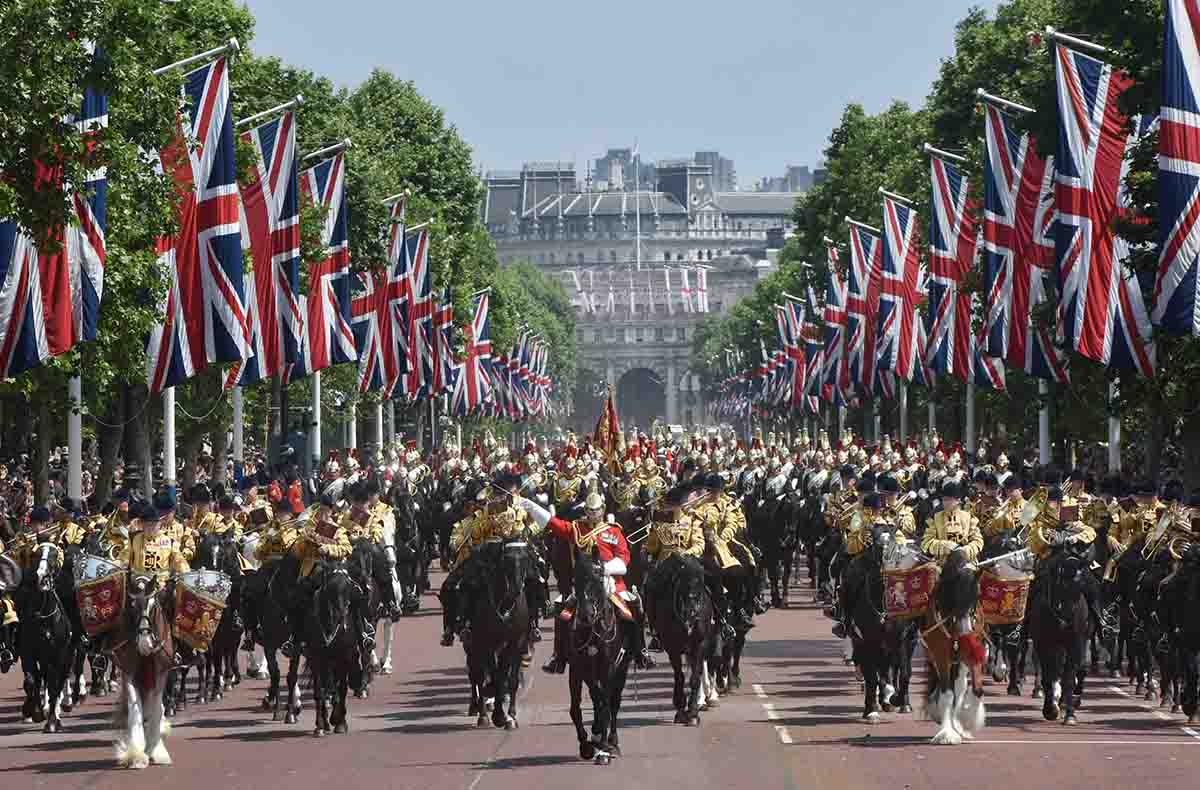
There is a truth that few in the Unionist community of Northern Ireland want to admit. It is too ugly to contemplate.
Loyalist culture can only exist if it has a Nationalist/Catholic community to fear and dominate. It is a strange, parasitic heritage that subsists on hate. But things do not have to be this way.
Temperatures are rising in this disputed part of the United Kingdom. The impact of Brexit has destabilized a province that has existed in an uneasy state of peace since the Good Friday Agreement of 1998. Tensions have been amplified by changing demographics. Census figures released in September showed Catholics outnumbering their Protestant neighbors for the first time since Northern Ireland was created 101 years ago.
The specter of a border poll—which could potentially reunite the island—has made Loyalists twitchy. British politicians are actively discussing the possibility of a referendum. This was anathema to London until recently.
Police raids on the Ulster Volunteer Force (UVF) in East Belfast this month recovered guns and bombs. A mural at the entrance to the Mount Vernon housing estate in the north of the city tells the story. “Prepared for peace, ready for war,” it says. The scene it depicts is anything but peaceful. Two masked, machine gun-toting paramilitaries loom threateningly from the gable wall. The problematic question is whether Loyalism is prepared for the future?
The Unionist working-class estates are peppered with murals depicting “volunteers” who were “killed in action,” many of them terrorist murderers by the standards of anywhere except the places that created them. These murals are an illustration of something else, too: how badly these communities have been let down by their politicians.
The term PUL (Protestant/Unionist/Loyalist) has become fashionable, but there are wide divisions within the description. Perhaps the only thing that brings all factions together is their distrust of Nationalists. The gap between middle-class Unionists and the residents of Northern Ireland’s Loyalist estates is more cavernous than the gulf between working-class Protestants and Catholics. This is particularly obvious in Belfast.
Brexit brought the issue of the border back to the forefront of the political agenda. The Northern Ireland Protocol effectively creates a sea border between the province and the rest of the UK and that has disturbing implications which are having a seismic impact on the political landscape. The Democratic Unionist Party (DUP) boycott of the Stormont assembly in protest against the Protocol has caused the power-sharing executive to be suspended. Suggestions that the political logjam could be broken by a period of joint authority rule by the British and Irish governments led the Loyalist Communities Council, which speaks for the UVF, Ulster Defence Association and the Red Hand Commando, to warn of “dire consequences” if such an experiment was attempted.
Men in balaclavas are again the face of Unionism. Republicanism has spent the past forty years shifting from IRA terrorism to political respectability. Militant Loyalism has not made the same journey. The men in the murals are still making threats.
There has always been an intellectual void at the heart of Unionism. This is in part because the Northern Irish state was created to satisfy Protestant needs. Until the 1970s, jobs were plentiful for Protestants. A form of apartheid kept Catholics in their place.
The decline of heavy industry affected both sides, but hit the Loyalist communities harder. Education is seen as a route out of the ghetto for Nationalists. Qualifications traditionally had little value among working-class Protestants, who could expect to leave school and move straight into employment. This devalued the need for formal learning.
Then the jobs dried up.
The legacy of this attitude is still being felt. The group with the lowest exam attainment rate in Northern Ireland is Protestant boys who are entitled to free school meals—one of the most obvious indicators of poverty. Just 47.9 percent of these youngsters achieved A* to C in GCSEs in the latest figures, underperforming their Catholic counterparts by more than 10 percent. Only boys from Roma and traveler backgrounds score lower in the entire UK. Report after report since the millennium has highlighted this problem.
There are other reasons why youngsters from Loyalist areas are left behind. The grammar school system has a negative impact on the poorest from both communities. Yet Catholic children are more likely to come into contact with higher socio-economic groups through the church and Gaelic Athletic Association activities. Working-class Protestants are ghettoized literally and philosophically. The so-called “Garden Centre Unionists” rarely venture into deprived areas. It is less than a mile from a mural on the Shankill estate that commemorates Stephen “Top Gun” McKeag—a UDA gunman to whom the police attribute at least twelve murders—to Belfast’s trendy Cathedral quarter with its stylish bars and restaurants. It might as well be another planet. The failure of political Unionism is starkly evident to anyone taking this short, twenty-minute walk from a dangerous past, where the lost boys of Protestantism are on the walls and the streets, to a complacent present.
The DUP in particular has performed badly. It facilitated a form of Brexit that illustrated how quickly Westminster will betray Loyalism. Unionism has left the field clear for Sinn Fein to exert influence at home and abroad, especially in the United States.
Demographics are not the only reason for the slide towards constitutional instability and the crisis of identity. A lack of creative thinking—and scant concern for the least well off—defines DUP politics. Northern Irish Protestants will have to readjust to life as a minority. That transition has the potential to be explosive. Those who are already the most marginalized are the most menacing.
Loyalism needs to move away from Orange Order marches. These traditional symbols of dominance are an anachronism. The province’s Protestants deserve a voice, one that will resonate outside their own echo chamber. “Ulster says No,” is no longer an option. The time has come to offer more than balaclavas and flute bands.


